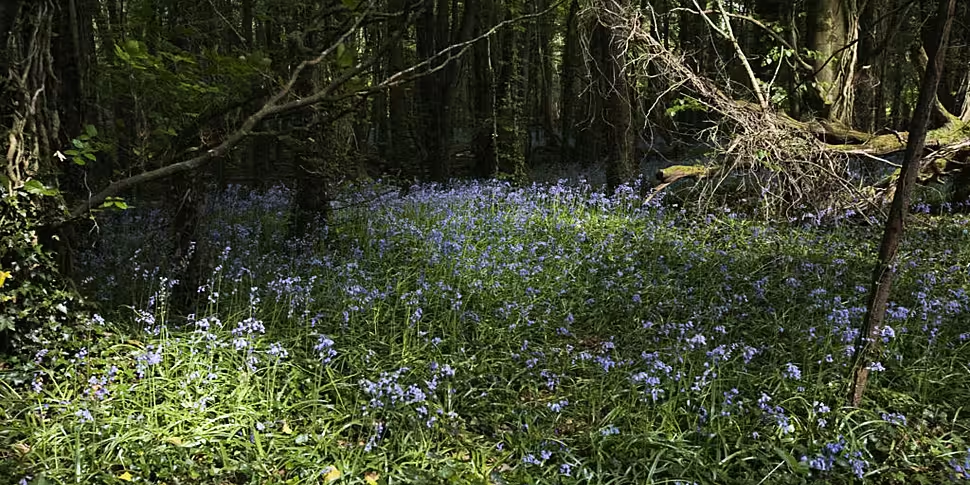The Green Party has launched a bid to fundamentally change Ireland's forestry model - and begin restoring native Irish woodlands right across the country.
The ‘Close to Nature’ motion calls on the Government to move away from plantation forests, grown on short thirty-year cycles, towards natural woodlands that are “bright, diverse and full of nature.”
The motion warns that Ireland currently has the lowest forest cover in the EU at just 11% – with one of the highest rates of plantation forestry.
More than half of the trees in Ireland’s forests are now Sitka Spruce and environmentalists have warned that the dense coverage of the trees blocks out sunlight - damaging ecosystems, driving out wildlife and leaving behind ecological 'dead zones.'
The Green Party motion calls on the Government to put in place the supports needed to move away from the plantation model and allow diverse native woodlands to flourish right across the country.
Today we launch our #CloseToNature forestry motion. We'll be asking Dáil Éireann to embrace a new vision for forestry in Ireland; a forestry model that puts nature and communities first. Watch our press conference live here at 12.30pm. pic.twitter.com/Xi0KXuhoMV
— Green Party Ireland (@greenparty_ie) October 1, 2019
Party leader Eamon Ryan said the plan calls for an “historic change in Irish forestry policy.”
“Rather than just focusing on short rotation plantations and lumber production we want our trees to address the biodiversity as well as the climate crises that we face," he said.
“The expansion in commercial forests has come at the expense of our wildlife.
“It is now time to change our ways and restore nature in every Irish landscape, neighbourhood, farm, home and street.”
"We need to get to 30% coverage and we can get there quite quickly," says @whittledaway, adding urban trees have a huge part to play. "This is a photo of Wellington Road, it's practically an urban forest. There's enormous potential in our cities to bring back trees and nature." pic.twitter.com/diVQFl41z2
— Green Party Ireland (@greenparty_ie) October 1, 2019
The plan calls on the government to re-balance forest premiums and payments to move supports away from plantation forests and towards natural Irish woodlands.
It also calls for Coillte objectives and legal structures to be updated to focus the agency on environmental and community objectives in addition to timber production.
"We should measure the success of a forestry model not just by how much timber we're producing but by how rich our natural systems are at the end of it. How much are we bringing back birds and insects? That is the new measure of our success," says @EamonRyan. #ClosetoNature pic.twitter.com/wktiCq3hoS
— Green Party Ireland (@greenparty_ie) October 1, 2019
It says local authorities and communities should be encouraged to begin a “radical expansion of urban tree planting” and works towards an increase in neighbourhood and community forests.
Meanwhile, farmers would be offered supports to plant a hectare of natural woodland on every registered farm holding in the country over the next five years.
It also calls for a new system of local forestry plans to support the planting of small-scale native woodland forests with a high proportion of native species all over the country.
Sometimes we need to be able see the #wolves from the #trees. Our motion is about supporting native woodlands and all the biodiversity that entails! https://t.co/KTW9nBeun2
— Green Party Ireland (@greenparty_ie) October 1, 2019
Deputy Ryan said the plan would see parts of the country rewilded, while others would be planted with native woodlands that produce high-quality wood products and beautiful forests to walk within.
He said native species that have long-since left the country, like wolves, could be re-introduced in the wilder areas.
He said this would “bring back a sense of wilderness and bring back ecology in the sense that those wolves would prey on deer which are actually holding back forestry at the present time,” he said.
“You see what has happened in other countries where actually they have restored natural ecosystems that are more resilient; that are more attractive; that have much more diverse, natural systems in a whole range of different ways.
“It is that level of ambition, it is that level of rewilding; that level of putting nature first.
“That is where we think this country needs to go and where we think the Irish people are ready to go to tackle the biodiversity and climate crisis that we face.”
The suggestion has been rejected by the culture Minister Josepha Madigan, who warned that the reintroduction of wolves would do “considerable damage to farming.”
My Department, @DeptAHG has no plans to reintroduce wolves in Ireland.
The reintroduction of a large predator which has been absent for 250 years might undermine existing conservation programmes and would do considerable damage to farming. https://t.co/qbx46JCOn8— Josepha Madigan ⚖️✨ (@josephamadigan) October 1, 2019









